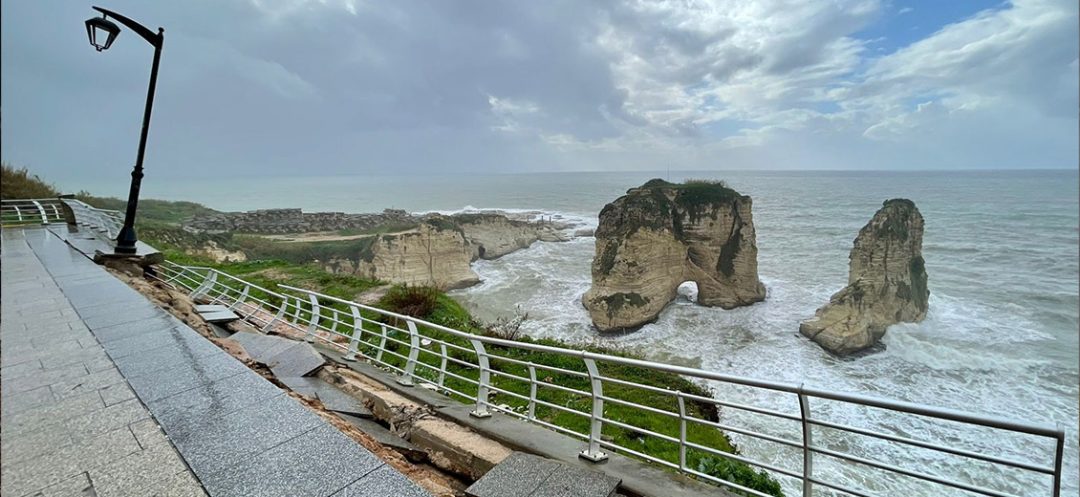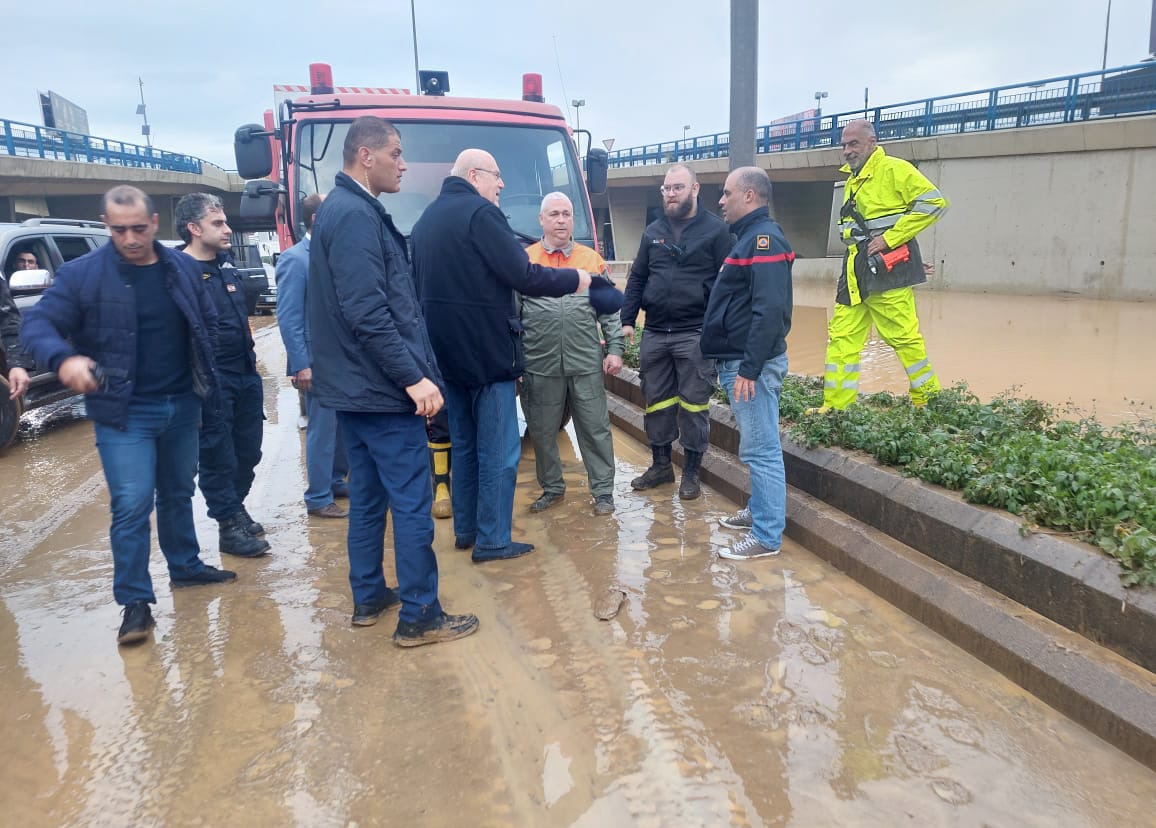Lebanon has lost count of the damage caused by the storm, which is still battering the country and should begin to recede later this Saturday. Across Lebanon, since Friday, the storm left its mark, with numerous flooding and landslides, highlighting the official neglect of infrastructure maintenance.
The storm was particularly deadly, with four Syrian refugee children killed when the Eternit roof of their home in the village of Hmeiss, near Miziara in northern Lebanon, collapsed. The roof collapse was caused by a landslide.
In Raoucheh, part of the pavement overhanging the rock collapsed, taking with it the metal balustrade of the cornice. Access to this part of the cornice, which is very popular with walkers and photographers, was blocked and police officers were deployed to prevent the unwary individuals from approaching the now very dangerous area. In the Chouf, two roads were cut off due to landslides. The first occurred in Jahlieh, where part of the road disappeared, while between Beiteddine and Kfar Katra, the road was cut by a mixture of earth and rocks that had fallen from the mountain.
The roads to Karantina, the airport, Jal el-Dib and Dbayeh, as well as the Chekka highway, were still impassable at midday due to flooding. The road leading to the port in the Karantina district remained inaccessible until mid-afternoon due to stagnant water under the bridge. Vehicles, including civil defense vehicles, were still submerged, although clearing operations had begun at around 11am under the supervision of the relevant authorities.
Caretaker Prime minister, Najib Mikati, has been following up since morning the state of roads and the damage caused by the storm, which continued on Saturday morning. He contacted the caretaker Minister of Public Works, Ali Hamieh, and the caretaker Minister of Interior, Bassam Mawlawi, to ensure that necessary measures are taken by their respective departments’ teams to clear the roads blocked by snow or landslides.
He also reached out to the governor of Beirut, Marwan Abboud, and the president of the city’s municipality council, Abdallah Darwish, emphasizing the need to intensify efforts to clear the Karantina road.
Later in the afternoon, Mr. Mikati and the governor inspected work in the area, where technical teams were trying to clear the gutters despite the bad weather and torrential rain.
Mr. Mikati assured that the disaster that trapped many cars on Friday “will be the subject of administrative and legal proceedings to determine those responsible, who will be held to account for their negligence”.
On his X (formerly known as Twitter) account, Ali Hamieh criticized the Ministry of Energy for not cleaning up the Beirut river, strewn with debris and responsible for Friday’s floods. He shared a video of the river’s mouth, blocked due to various waste. “There is no need for further analysis or justifications. The relevant services must promptly clear the river’s mouth before the next storm,” he wrote.
A part of the pavement overlooking the sea collapses in Raoucheh pic.twitter.com/RG6scabGF2
— This is Beirut (@ThisIsBeirut_) December 23, 2023
In #Akkar, the #Qammoua plain turned into a lake pic.twitter.com/mH5qYrOLHi
— This is Beirut (@ThisIsBeirut_) December 23, 2023
For his part, Bassam Maoulaoui has asked the Mohafez and the Beirut Municipality to inspect the building that partially collapsed in Zokak el-Blatt on Friday and to ensure that the surrounding buildings are safe.
He also instructed the mohafez and the presidents of the local councils to start work immediately to reopen the roads blocked or damaged by the bad weather, in particular the pavement of the Raoucheh cornice.
Video by Dima Karam



